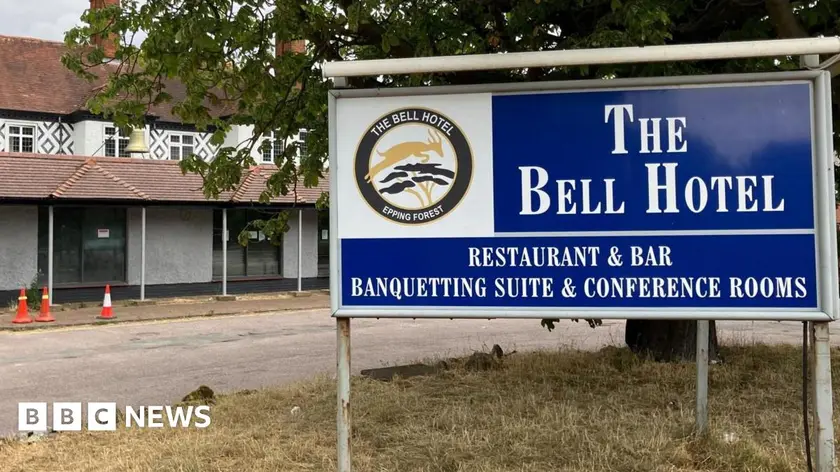T4K3.news
High Court to decide on Bell Hotel case
The High Court will determine whether The Bell Hotel in Epping can be used for asylum seeker housing and the related planning implications.

A London High Court case asks whether The Bell Hotel in Epping should be used for migrant accommodation amid local protests and broader national policy on asylum housing.
High Court hears challenge to Bell Hotel asylum seeker housing
The High Court in London opened a challenge from Epping Forest District Council over The Bell Hotel in Epping. The council seeks an interim injunction to stop the site being used as migrant accommodation, arguing the building no longer operates as a hotel and should not host asylum seekers. The case could set a precedent for how councils handle hotels used for temporary housing across the country as part of the Home Office duty to provide shelter.
Counsel for the council described the situation as a serious problem creating anxiety in the community, pointing to protests outside the hotel after two residents faced sexual offence charges, including one involving a 14 year old. They argued that there is no arrangement with the asylum seekers about stay duration or room type and that treating the site as a hotel is inaccurate. Somani Hotels Limited countered that backing away from accommodation would cause hardship for asylum seekers and risk a broader political precedent. They noted the Home Office statutory duty to find emergency housing and argued the planning step should not hinge on local protests or concerns.
Key Takeaways
"Accommodation must fit its duty not a staging ground for unrest"
Editorial reflection on balancing care and community safety
"The Home Office has a statutory duty to provide shelter"
Legal obligation highlighted during the hearing
"Protests reveal the pressure points in how asylum policy is rolled out locally"
Commentary on public reaction and policy rollout
"A ruling here could reshape how towns confront sudden migrant housing needs"
Policy implications for future cases
The case tests whether local planning rules can override or redefine national commitments to shelter vulnerable people. It also spotlights how public demonstrations intersect with planning and welfare policy. If the injunction is granted, it could embolden or deter councils from using hotels for asylum housing, potentially reshaping local decision making and national implementation of asylum policy. If the injunction is denied, communities may push for clearer rules on where asylum seekers can be housed and how planning authorities respond to public concerns. Either outcome will influence how towns balance humanitarian duties with local trust and safety considerations.
Highlights
- Accommodation must fit its duty not a staging ground for unrest
- The Home Office has a statutory duty to provide shelter
- Protests reveal the pressure points in how asylum policy is rolled out locally
- A ruling here could reshape how towns confront sudden migrant housing needs
Budget and political risk linked to asylum seeker housing case
The court ruling could influence local budgets and national policy on asylum housing. A decision in favor of an injunction may heighten political tension and scrutiny of council decisions, while a defeat could raise concerns about the welfare of asylum seekers and the capacity of emergency housing programs.
The verdict will test how quickly local rules adapt to national needs in a moment of policy strain.
Enjoyed this? Let your friends know!
Related News

Council acts to close Bell Hotel

Judiciary halts new arrivals at Epping asylum hotel

High Court ruling awaited on Epping asylum hotel

Hotel protest case moves to trial

Court weighs injunction against Bell hotel asylum housing

Conor McGregor's appeal in civil case rejected

Palestine Action ban defended in UK politics

Protests in Epping spark debate over asylum housing
